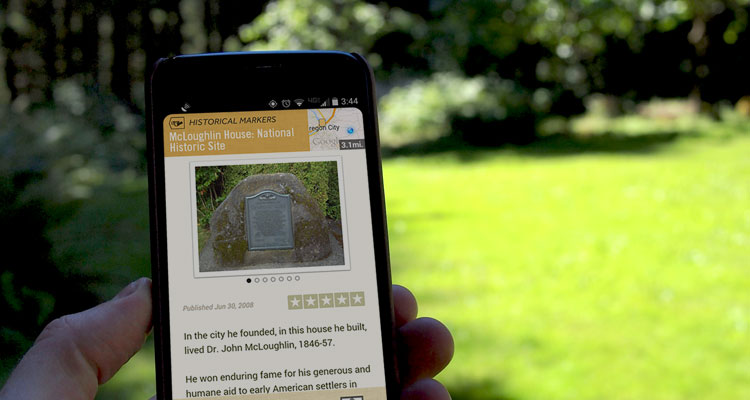Discover Points of Interest with Field Trip
You know, it’s really a shame that throughout our daily lives we may find ourselves near some really interesting or historical spots, and never know they’re right in front of us. Wouldn’t it be nice if we could be alerted when we’re near something of interest, receive a bit of information about it, and choose to learn more about the world around us?
This is exactly what Google is trying to help us all accomplish with a little-known app called “Field Trip” from Google’s Niantic Labs, which is an odd offshoot of the search giant, to say the least. As odd as that might be, I appreciate Google/Niantic’s attempts to get people out and explore the physical world.
Read Business Insider’s feature on Niantic Labs.
Here is a quick video that shows you what the app is all about. [embedvideo id=”zusjUjaiWJQ?rel=0″ website=”youtube”] 
When you are physically near a POI, you may receive a notification telling you about it, in case you’d like to learn more. I should point out that it’s practically necessary to enable the GPS on your phone, so your location isn’t estimated and you’re actually getting notifications about things next to you – not a half mile away!
You can configure the app to display notifications for most/all POI’s, set it to “I’m Feeling Lucky”, which will display only the best POI’s, or turn off notifications altogether if you’re the type of person who would rather do the searching yourself by opening up the app manually.
I have my app set to “I’m Feeling Lucky” because there really are a lot of POI’s out there, and I found that I was receiving way more notifications than I’d like when it was set to display all.
Make It a Game!
Google has also released an app that borrows what seems to be much of the same architecture that Field Trip was built on. It’s called Ingress, and makes the world around you into a game. Disclaimer: Ingress is currently available for Android, but it may be coming to iOS summer 2014.
The World Around You Is Not What It Seems

If you’re the adventurous type, you may have a lot of fun spending a day with your kids out and about using Field Trip and/or Ingress. I’d love for you to give these apps a try and let us know what you think in the comments!
Related Links:
- View K12’s mobile apps for iPhone, iPad, Android and Kindle Fire
- Google Field Trip on Google Play
- Google Field on iTunes
- Ingress on Google Play
- Forbes: The Niantic Project: What Is Google Up To?
- Engadget: Google’s Niantic Labs Launches Field Trip app for Android, Helps the Working World Play Hooky
Photo courtesy of Scott Holm






































